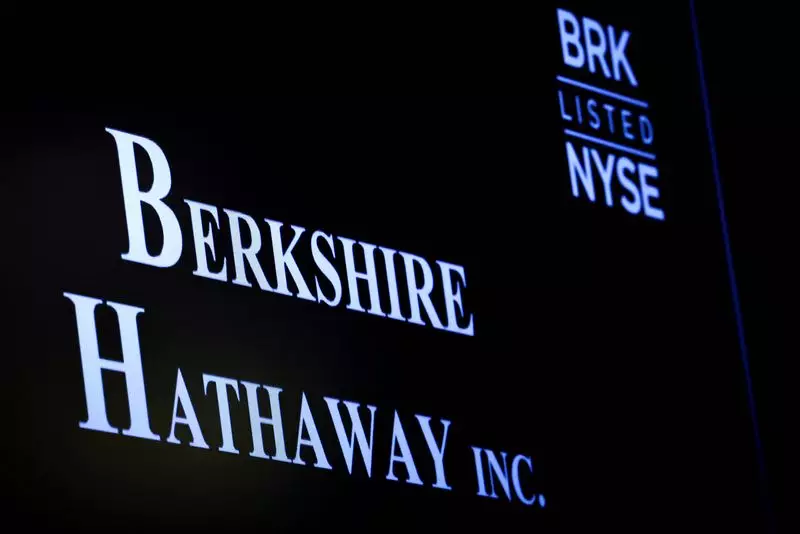Warren Buffett, the venerable figure in the investment realm, has recently shifted his strategy towards a notable retreat from equity markets. In the third quarter of the year, Berkshire Hathaway reported significant reductions in its stock holdings, particularly in tech giant Apple. This strategic shift has seen Berkshire bolster its cash reserves to an unprecedented amount of $325.2 billion, starkly showcasing a cautious approach amid uncertain market conditions. The sale of approximately 100 million shares of Apple, amounting to 25% of its holdings, underscores a broader trend within the company where liquidity takes precedence over stock accumulation.
Buffett has long been an advocate of understanding and managing investment risks. As interest rates fluctuate and market volatility increases, his decision to trim the Berkshire portfolio is not merely a reactionary move but a calculated judgment. Despite selling off more than 600 million shares of Apple in 2024, the company still retains a substantial holding valued at $69.9 billion, firmly positioning Apple as its most significant stock investment.
Berkshire Hathaway’s recent financial report revealed a 6% decline in quarterly operating profit, a metric that Buffett and his team believe offers a more stable view of the company’s health than net income figures, which can be skewed by the volatile nature of investment valuations. This decline is primarily attributed to increased insurance underwriting liabilities linked to weather-related events, specifically Hurricane Helene, compounded by the pressures of a robust U.S. dollar that has negatively impacted foreign currency holdings.
Although operational profitability has declined, certain segments within Berkshire Hathaway have shown encouraging signs. The Geico insurance unit reported a nearly doubling of underwriting profits, reflecting a reduction in accident claims and overall expenses. Similarly, the BNSF railroad, a significant component of Berkshire’s portfolio, benefitted from heightened consumer goods shipping, indicating resilience in specific operational areas despite overarching economic pressures.
Berkshire’s decision to hoard cash instead of aggressively pursuing stock purchases speaks volumes about Buffett’s current market sentiment. Throughout the quarter, the conglomerate repurchased no shares of its own stock, signaling a belief that even its own shares do not present a compelling value proposition. Instead of investing heavily, Berkshire acquired a mere $1.5 billion in additional stocks, marking the eighth consecutive quarter in which the firm operated as a net seller rather than a buyer.
Buffett’s comments in May about maintaining Apple as a primary investment showcased an unusual cognitive dissonance with the actual selling behavior, potentially influenced by the impending changes in tax regimes. With anticipated increases in capital gains tax rates, strategic selling could safeguard against future tax liabilities, highlighting the calculative nature of Buffett’s investment philosophy.
In terms of operational challenges, Berkshire faced significant setbacks due to weather events, specifically $565 million attributed to Hurricane Helene, which impacted its insurance segment substantially. Looking ahead, Berkshire projects a potential loss of up to $1.5 billion from Hurricane Milton, which struck Florida in October. These forecasts indicate that weather-related risks are increasingly factored into the operational strategies of major firms like Berkshire and present an area of concern for future financial projections.
As Buffett, now 94, continues to helm Berkshire Hathaway, thoughts of succession loom large. Vice Chairman Greg Abel, widely considered Buffett’s eventual successor, represents a new generation of leadership that must navigate the company through both legacy challenges and modern-day market dynamics. This transition will be pivotal as Berkshire strives to retain the foundational investment principles while adapting to an evolving landscape of opportunities and risks.
The current trajectory of Berkshire Hathaway reflects a thoughtful recalibration of investment strategies under Buffett’s seasoned leadership. The strategic retreat from stocks and the building of cash reserves emerge as a prudent response to an increasingly uncertain economic environment. As Buffett prepares for a future beyond his own tenure, the resilience and adaptability of Berkshire Hathaway will undoubtedly be put to the test.


Leave a Reply